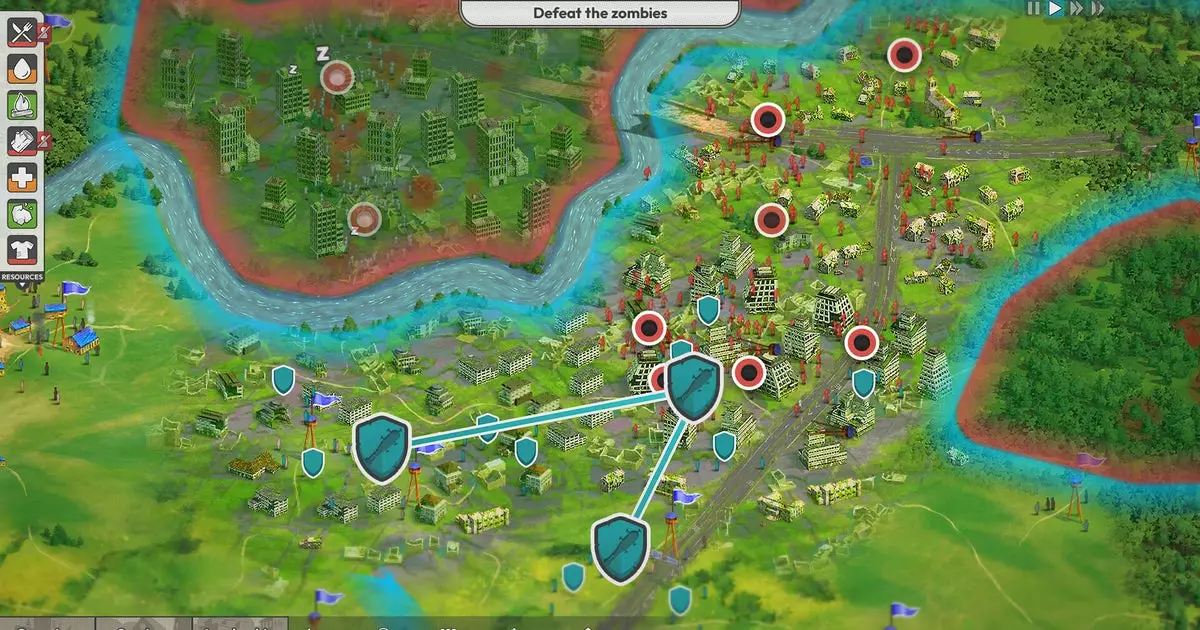In the realm of mobile gaming, few titles have managed to capture the public’s imagination quite like Ndemic Creations’ Plague Inc. Originally released in 2012, this innovative strategy simulation game allowed players to cultivate and propagate a deadly pathogen, culminating in global chaos. Following its unexpected surge in interest during the COVID-19 pandemic, the studio has pivoted in its thematic approach with the announcement of After Inc: Revival. This new venture aims to blend the genre of city-building with elements reminiscent of 4X games, taking place in a vividly imagined post-apocalyptic United Kingdom, where survival and reconstruction form the crux of the gameplay.
After Inc: Revival transports players into a world where they are not the harbingers of destruction, as in Plague Inc, but rather the architects of a new beginning. Set against a backdrop of abandoned cities and overgrown landscapes, this game flips the narrative. Instead of spreading a plague, players are tasked with nurturing a society from the ashes of its former self. The chosen setting—a picturesque yet hauntingly derelict UK—invokes a sense of nostalgia and the stark contrast between beauty and decay. This duality invites players to reflect on their role as creators rather than destroyers, providing a refreshing take on the societal simulation genre.
However, the game’s marketing and fundamental premise raise intriguing ethical questions and deeper commentary that warrant exploration. As players craft settlements adorned with cozy cottages and flourishing cornfields, they also grapple with the harsh realities of survival in a world still infested by zombies. The juxtaposition of idyllic rural life against the constant threat of the undead forces players to confront the sustainability of their settlements, making decisions that reflect not only on resource management but also on societal values.
One of After Inc’s notable features lies in its emphasis on moral decision-making. Players must confront dilemmas that challenge their perception of community and resource allocation—questions such as whether children are a “luxury” or whether dogs serve as companions or sustenance. The game’s framing of these choices evokes reflections on real-world societal structures and the complexities of governance. The introduction of democracy versus authoritarianism adds another layer, drawing parallels with contemporary socio-political discourse.
The commentary on leadership is also astutely positioned within the game’s design. With ten unique leaders each possessing distinct abilities, players are encouraged to explore various governance styles. This mechanic not only enhances replayability but also highlights the importance of leadership in the aftermath of crisis—a point that resonates with modern audiences wrestling with questions of governmental efficacy in the face of global challenges like the pandemic.
Graphically, After Inc: Revival opts for an aesthetic reminiscent of the beloved King Of Dragon Pass, merging vibrant artistry with an evocative portrayal of post-apocalyptic life. This approach serves not only to immerse players in the game’s world but also as a potential commentary on reconstruction after devastation. The developers have acknowledged the association of their game with current global anxieties indirectly, jokingly maintaining that their fictional zombie apocalypse is unrelated to real-world events, yet such claims are hard to dissociate from the subconscious grappling many have experienced during the pandemic.
Players may find themselves questioning the term “return to normalcy.” The game invites contemplation on whether our society truly seeks a return to what once was, particularly when there are vestiges of chaos stirring beneath the surface. The mix of fiction and reality exemplified here may resonate deeply, framing the dialogue around climate change, pandemics, and societal adaptation in the wake of trauma.
Scheduled for early access in 2025, After Inc: Revival promises evolving gameplay with expanded content, from new character traits to challenges influenced by player choices. Intriguingly, this suggests that the game will evolve not just through its mechanics but also through its narrative, adapting to player experiences and decisions in a way that reflects the complex tapestry of modern society.
After Inc: Revival balances fun with meaningful reflections on society’s capacity for resilience and renewal amidst chaos. As players begin to explore the possibilities of rebuilding amidst the remnants of a zombie apocalypse, they are invited to consider their values, choices, and the collective journey towards societal rejuvenation. This makes the game not just an entertainment experience, but a potential canvas for exploring deeper philosophical questions about humanity’s future in an increasingly uncertain world.


Leave a Reply